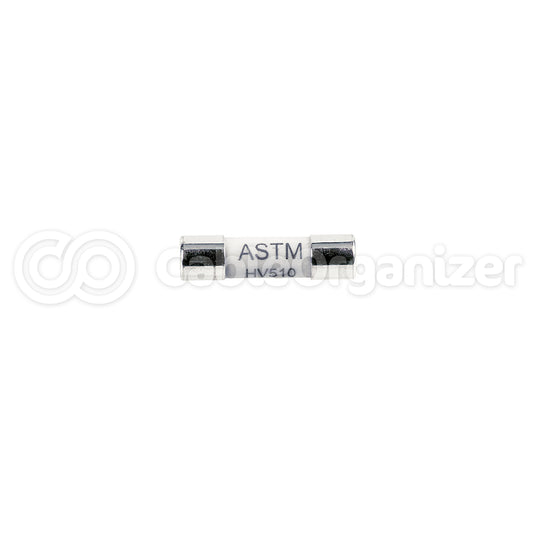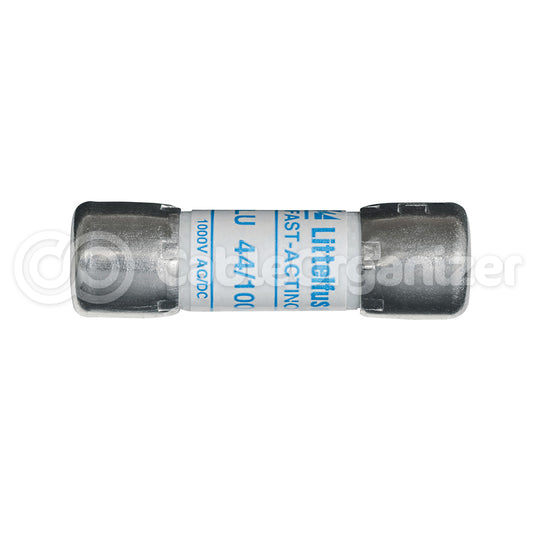What Exactly is an Electrical Fuse?
By: CableOrganizer®

An electrical fuse is a current interrupting device. It protects an electrical circuit in which it is installed, by creating an open circuit condition, in response to excessive current.
When the element in some types of fuses receive too much heat, it will melt and interrupt the current. Fuses are usually used as a conduit between an electrical power source and an electrical component — or a combination of components arranged in an electrical circuit. A fusible link is connected between the fuse terminals. This means when an electrical current passing through the fuse goes beyond what the device is able to handle, the fusible link will melt, and the circuit opens, thus preventing electrical component damage.
Each fuse is designed specifically as a solution to one or more extreme electrical events. In general, an electrical fuse combines both a sensing and interrupting element in one self-contained device.
Some fuses are considered “non-renewable,” meaning they were made for single time use. In other words, once it shuts a device down, it must be replaced and cannot be reset. There are other fuse types that are classified as “renewable.” This kind of fuse can be removed following an overcurrent condition; and then replaced in its holder, with a new fuse with the same rating.
Overcurrent protection comes from a variety of sources, such as circuit breakers, switches, and relays. Each type of equipment has variations in ratings, service requirements, and costs. Fuses are typically the most economical means for providing automatic high-voltage current protection against a single over-current failure.
Fuses are part of electrical systems in cars, trucks, boats, motorcycles, and other types of vehicles. These fuses function to stop electricity from flowing to a particular component of the system. They create an open circuit in response to an unsafe electrical condition. In the utility industry, fuses are found in distribution transformers, cables, capacitor banks, and other equipment, from damaging overcurrents. Fuses operate in such a way, that the disconnect will occur before damage can harm an electrical system. They are used quite a bit in high voltage electrical networks, protecting the electrical equipment in the network, from damage caused by surges through the system.
There are many types of fuses, we have listed a few below:
- Cartridge fuses
- Plug fuses
- Time-delay fuses
- Resettable fuses
- Semiconductor fuses
- Photovoltaic fuses
- High-rupturing capacity fuses
- Thermal fuses
- Mechanical fuses
- Blade fuses
- High voltage fuses
- High-speed fuses
- Current-limiting fuses
- Expulsion fuses
- Varistors (VDRs)
- Spark Gap Surge Arresters (also known as Lightning Arrester or Surge Arrester)
Shop at CableOrganizer® for an array of electrical supplies, including fuses.


